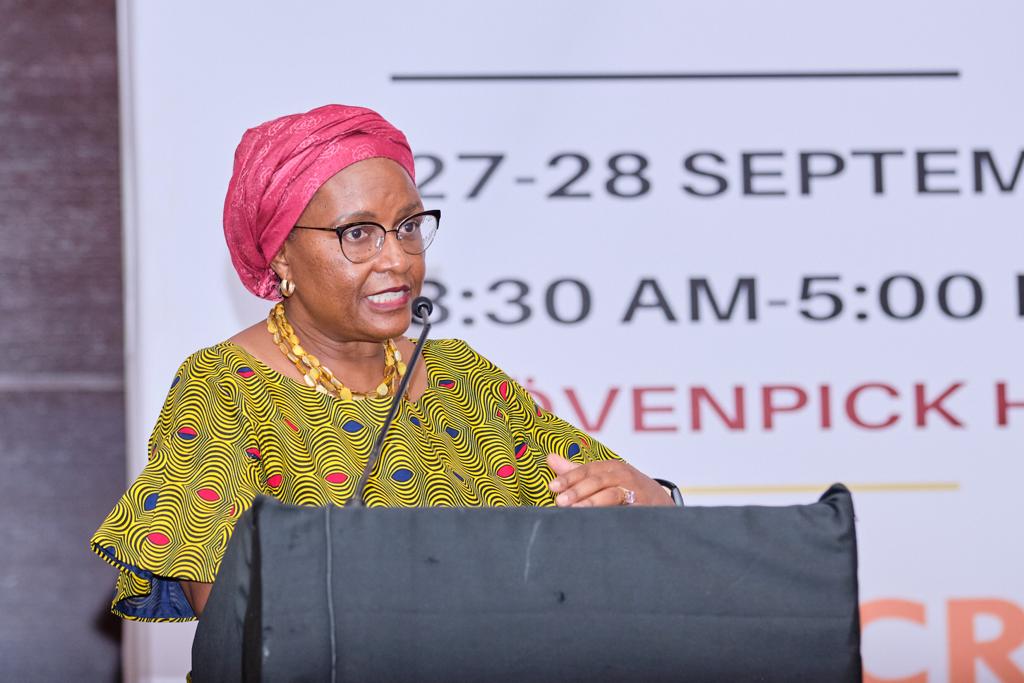By Morkporkpor Anku
Accra, Sept. 28, GNA – Mr Silver Ojakol, Chief of Staff at the AfCFTA Secretariat, says political will, collaboration and an understanding of AfCFTA tenets were critical to overcoming trade barriers on the continent.
He said in the vein of collaboration, Africa needed to come together and achieve just one per cent increase in trade on the continent, which would earn it 70billion dollars, way higher than the 58 billion given by donors for development assistance.
Mr Ojakol was speaking at the opening of a two-day SME Conference and Training Session in Accra on the theme: “Breaking Business Barriers for AfCFTA Acceleration.”
The Conference is to raise awareness of the AfCFTA strategy for private sector engagement, deepen the capacity of SMEs to understand how to leverage opportunities offered by the AfCFTA and prepare African SME leaders to expand their businesses through regional value chains.
The SME Conference was organised by the Centre for Regional Integration in Africa (CRIA) in partnership with the African Capacity Building Foundation (ACBF); and the Ghana Institute of Management and Public Administration.
About 150 participants took part in discussing various aspects of SME access to African markets through the AfCFTA framework.
He said the big corporations such as Total Energies, Shell, Coca Cola all had connections at borders to avoid the trade barriers, but the SMEs were in trouble because they had no one to call.
“When we were signing the AfCFTA (in 2019) we said the agreement being created is not for the big corporations but rather SMEs,” he added.
He said the journey to the implementation of the agreement was marked by a strong political will by African Heads of State and governments and the enthusiasm of the private sector to change the destiny of the African people by making the continent an economic powerhouse.
He said the AfCFTA was the first agreement in the world to have entered into force within a year of the signature of the agreement.
Mr Ian Mashingaidze, the Interim Director of Programmes at ACBF said even when Africans had made significant strides in fostering economic cooperation and integration among African countries, challenges such as trade barriers, inadequate infrastructure, and limited access to finance were still impeding the seamless flow of goods, services, and investments across our borders.
“ACBF recognizes that without the necessary capacities, African countries and businesses may struggle to fully leverage the benefits of AfCFTA,” he said.

He said ACBF Strategic Plan 2023-2027 placed a strong focus on ‘Trade as an Engine of Economic Development’ as one of the key impact areas.
This provides targeted capacity building support to governments, policymakers, institutions, and individuals involved in the AfCFTA implementation process.
“Furthermore, ACBF recognizes the importance of building the capacities of institutions responsible for trade facilitation, such as customs authorities, standards bodies, and regulatory agencies,” he added.
He said strengthening these institutions would contribute to the efficient movement of goods and services across borders, ensuring compliance with international trade standards, and reducing trade barriers.
He said the organization also placed emphasis on enhancing the skills and knowledge of entrepreneurs, SMEs, and other business actors through targeted training programmes, mentorship initiatives, and entrepreneurship development activities that equip businesses with the necessary skills to effectively participate in regional and international trade.
“ACBF’s Strategic Plan for 2023-2027 aligns closely with the objectives of the AfCFTA, as it recognizes the crucial role of capacity building in supporting the successful implementation of this landmark trade agreement,” he added.
He said by investing in capacity building, ACBF sought to empower African countries and businesses to overcome the challenges of regional integration, seize the opportunities presented by AfCFTA, and contribute to sustainable economic growth and development.
Mr Mashingaidze said it was a collective responsibility to ensure that capacity building remained at the forefront of the efforts to break the business barriers for AfCFTA acceleration.
Prof. Lehlohonolo Tlou, Executive Director, Centre for Regional Integration in Africa (CRIA), said it had taken the continent some time to get to this point.
“This is the time to take advantage of the AfCFTA. Six decades is a lifetime and we need to embrace it,” she said.
She said intercontinental trade in Europe was 70 per cent, meaning the Europeans were trading together, then just 30 per cent with the rest of the world.
Prof Tlou said when trade barriers were eliminated and come together, “we will understand what needs to be done and the continent cannot grow SMEs alone, but through raising awareness and collaboration.”
GNA